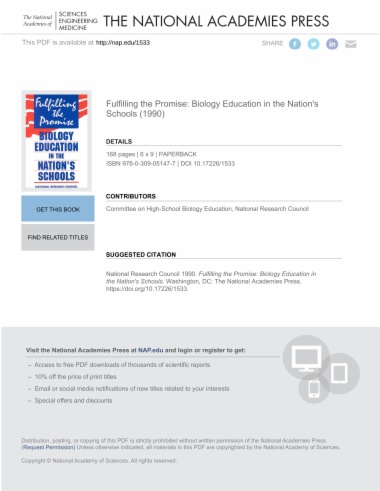

Why are students today not learning biology, appreciating its importance in their lives, or pursuing it as a career? Experts believe dismal learning experiences in biology classes are causing the vast majority of students to miss information that could help them lead healthier lives and make more intelligent decisions as adults. How can we improve the teaching of biology throughout the school curriculum? Fulfilling the Promise offers a vision of what biology education in our schools could be—along with practical, hard-hitting recommendations on how to make that vision a reality. Noting that many of their recommended changes will be controversial, the authors explore in detail the major questions that must be answered to bring biology education to an acceptable standard: how elementary, middle, and high-school biology education arrived at its present state; what impediments stand in the way of improving biology education; how to properly prepare biology teachers and encourage their continuing good performance; and what type of leadership is needed to improve biology education.